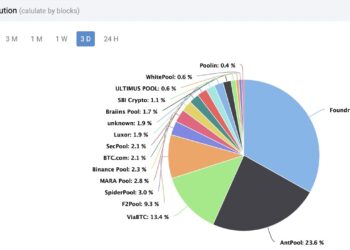- Revolut has entered the crypto market with Revolut X.
- Legal uncertainties and competition might impact Revolut’s crypto expansion.
On the 7th of May, Revolut, the UK-based FinTech firm known for its mobile banking and payment solutions, made a significant stride into the cryptocurrency realm with Revolut X.
Explaining the motive behind this step, Leonid Bashlykov, head of crypto exchange product at Revolut, told The Block,
“We put the customer at the heart of everything we do, and understand that competitive fees as well as easy on and off ramping are at the heart of what experienced traders want from a crypto platform.”
The reason behind Revolut’s move
In line with the global growth of the cryptocurrency market, Revolut has stepped up its crypto activities in recent years.
In March, it partnered with MetaMask (maintained by Consensys) to launch Revolut Ramp, a platform allowing direct crypto purchases in the UK and Europe.
Remarking on the same, Bashlykov in conversation with Payment Expert added,
“Revolut X along with our recent partnership with MetaMask, further consolidates our product offering in the world of Web3,”
Revolut’s crypto dreams: Not that easy
Amidst these developments, the recent legal clash between the SEC and Consensys added a layer of uncertainty to the situation.
Additionally, Revolut’s launch of Revolut X in the crypto market contrasted with its withdrawal from providing crypto services to U.S. customers in August 2023.
This decision was due to unclear regulations and market uncertainties in the U.S., affecting 1% of its users.
It’s interesting to note that it might also face stiff competition from established rivals like Binance [BNB], Coinbase, Bybit, and OKX.
Notably, the event coincides with the UK’s preparation of legislation governing stablecoins and various aspects of crypto, including staking, exchange, and custody.
Remarking on the same, Economic Secretary Bim Afolami, speaking at the Innovate Finance Global Summit, added,
“Once it goes live, a whole host of crypto asset activities, including operating an exchange, taking custody of customers’ assets and other things, will come within the regulatory perimeter for the first time.”

























































![What Is Asset Tokenization? Types, Why It Matters Now [2025]](https://coininsights.com/wp-content/uploads/2025/05/asset_tokenization-360x180.png)


























can i purchase clomid pills where buy cheap clomid where buy cheap clomiphene price clomid pill how can i get cheap clomiphene tablets clomid pills price at clicks clomiphene medication cost
Greetings! Jolly useful advice within this article! It’s the crumb changes which liking obtain the largest changes. Thanks a lot quest of sharing!
More posts like this would add up to the online time more useful.
where to buy zithromax without a prescription – buy tindamax online oral flagyl
order semaglutide 14mg for sale – buy semaglutide generic periactin medication
motilium 10mg uk – cyclobenzaprine 15mg price flexeril oral
buy propranolol cheap – buy generic inderal 10mg buy cheap generic methotrexate
generic zithromax 250mg – order tindamax 300mg online cheap nebivolol without prescription